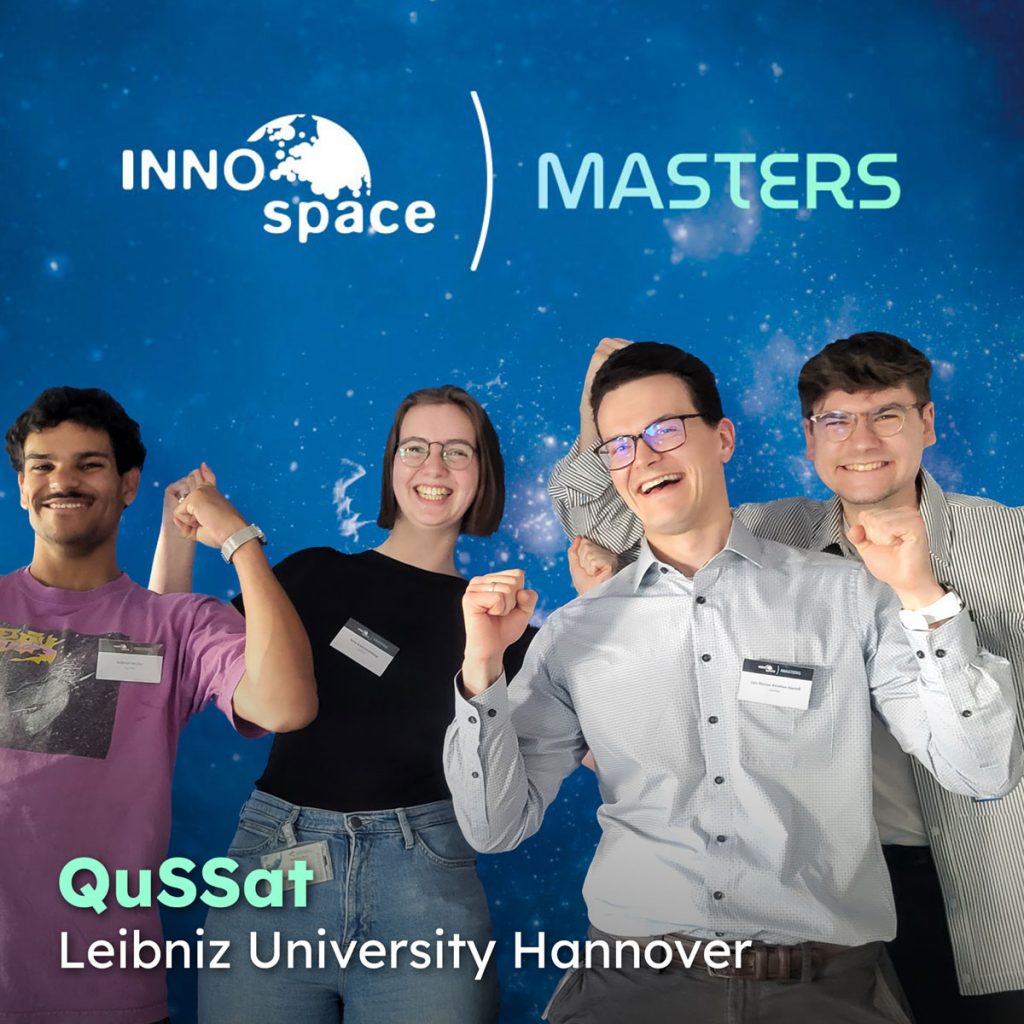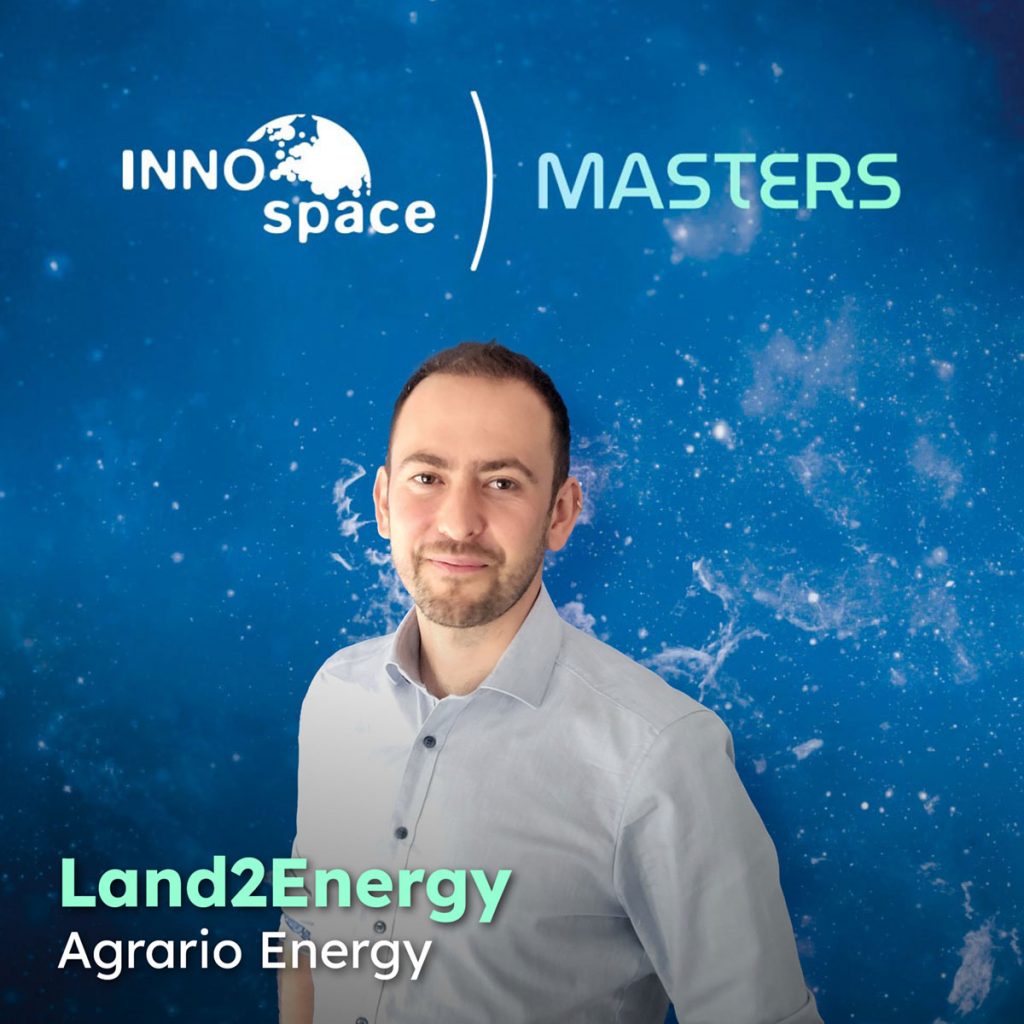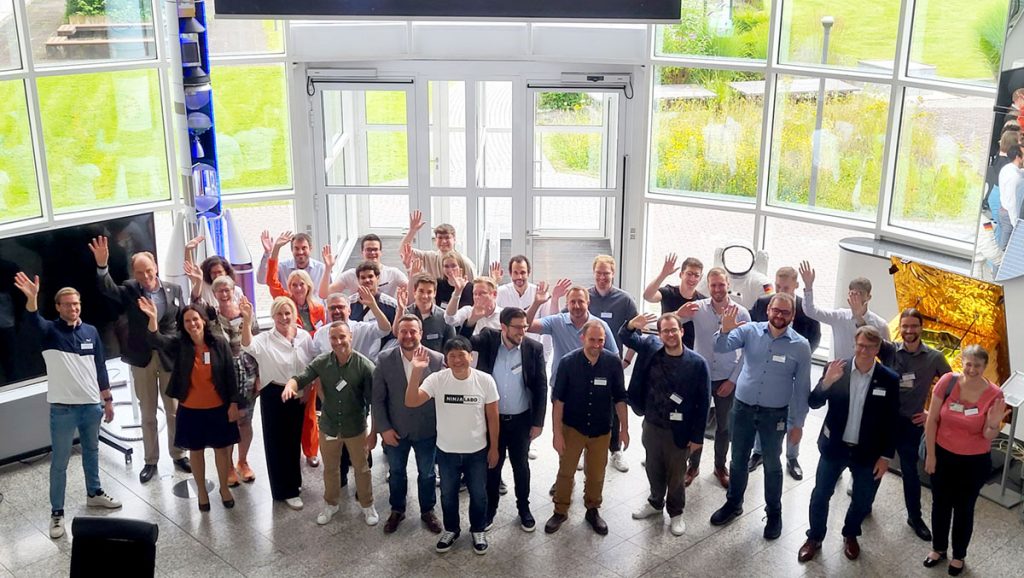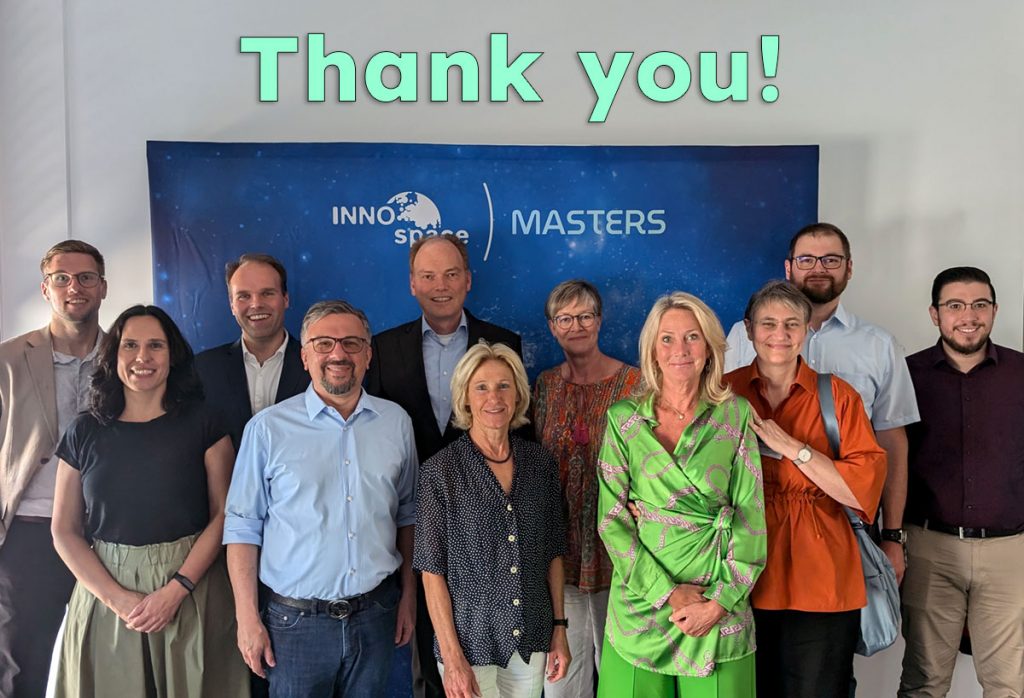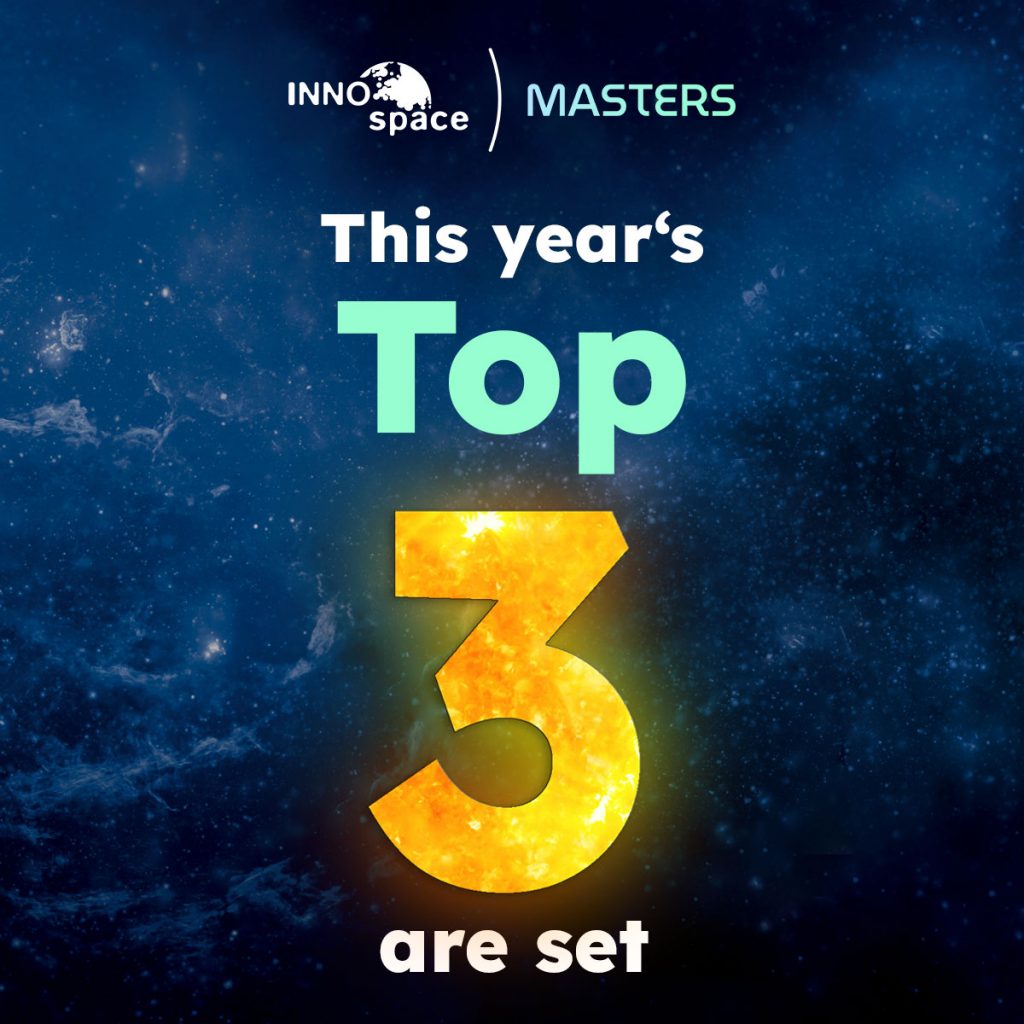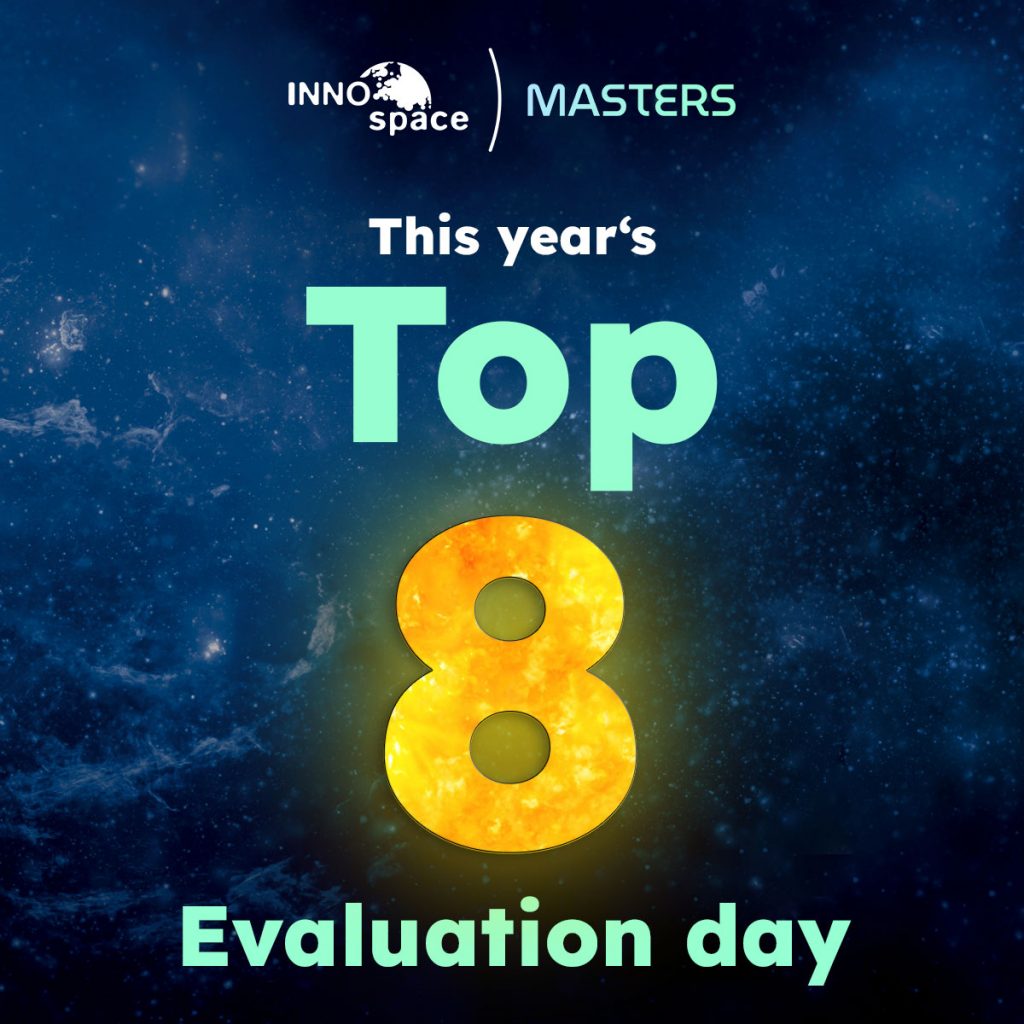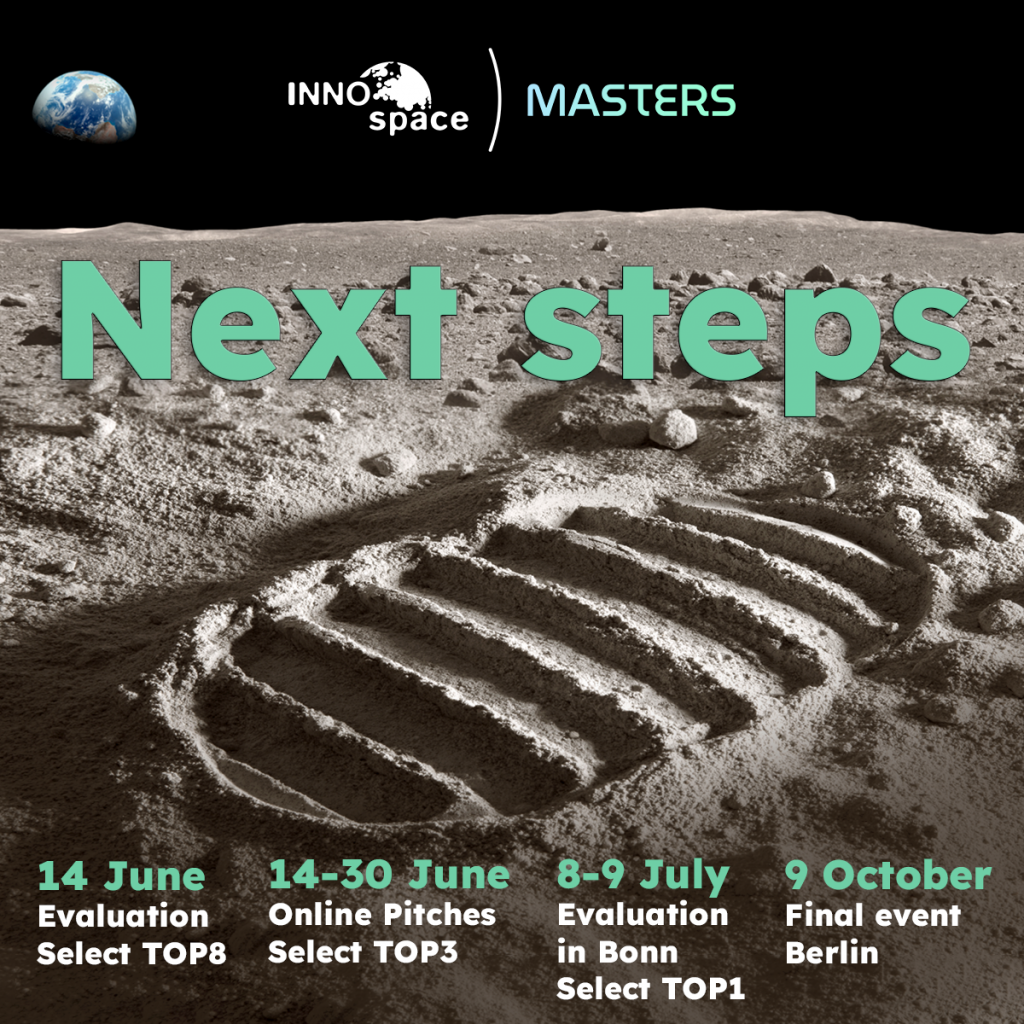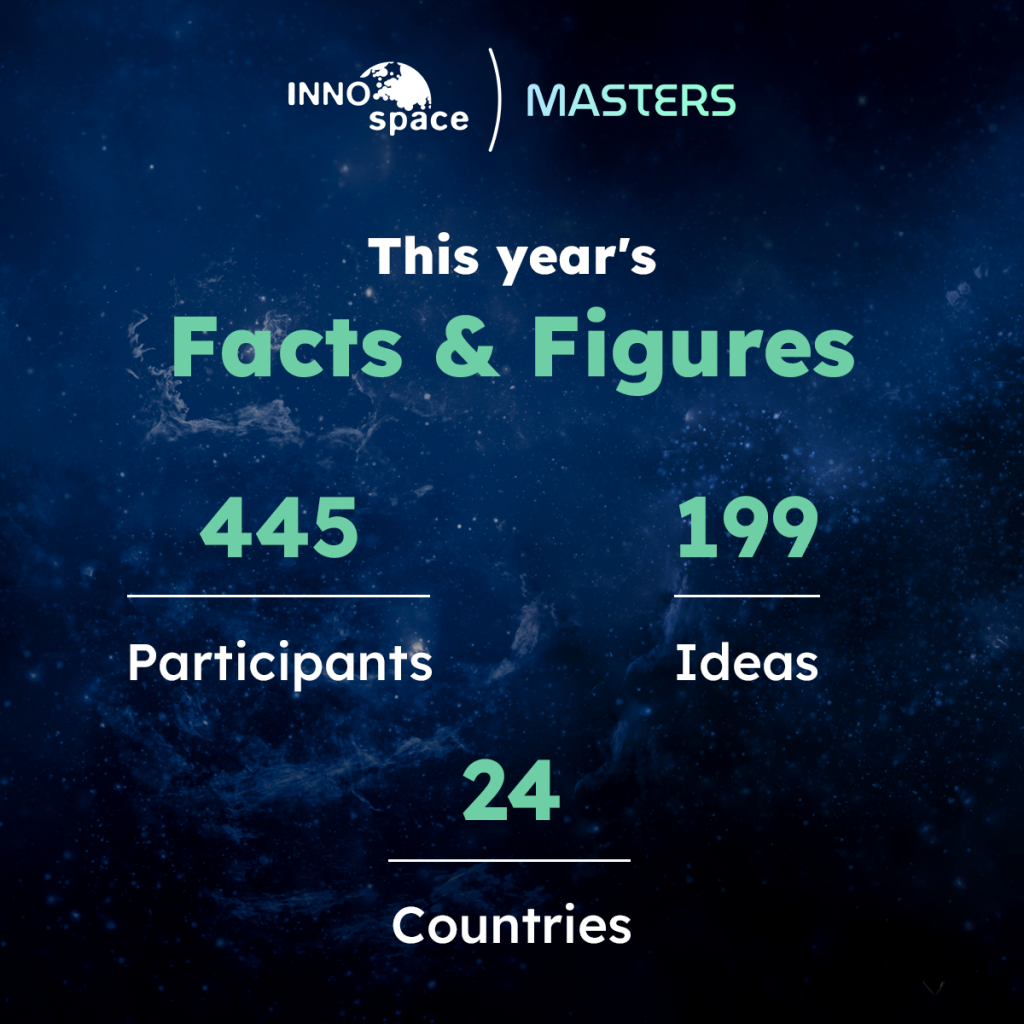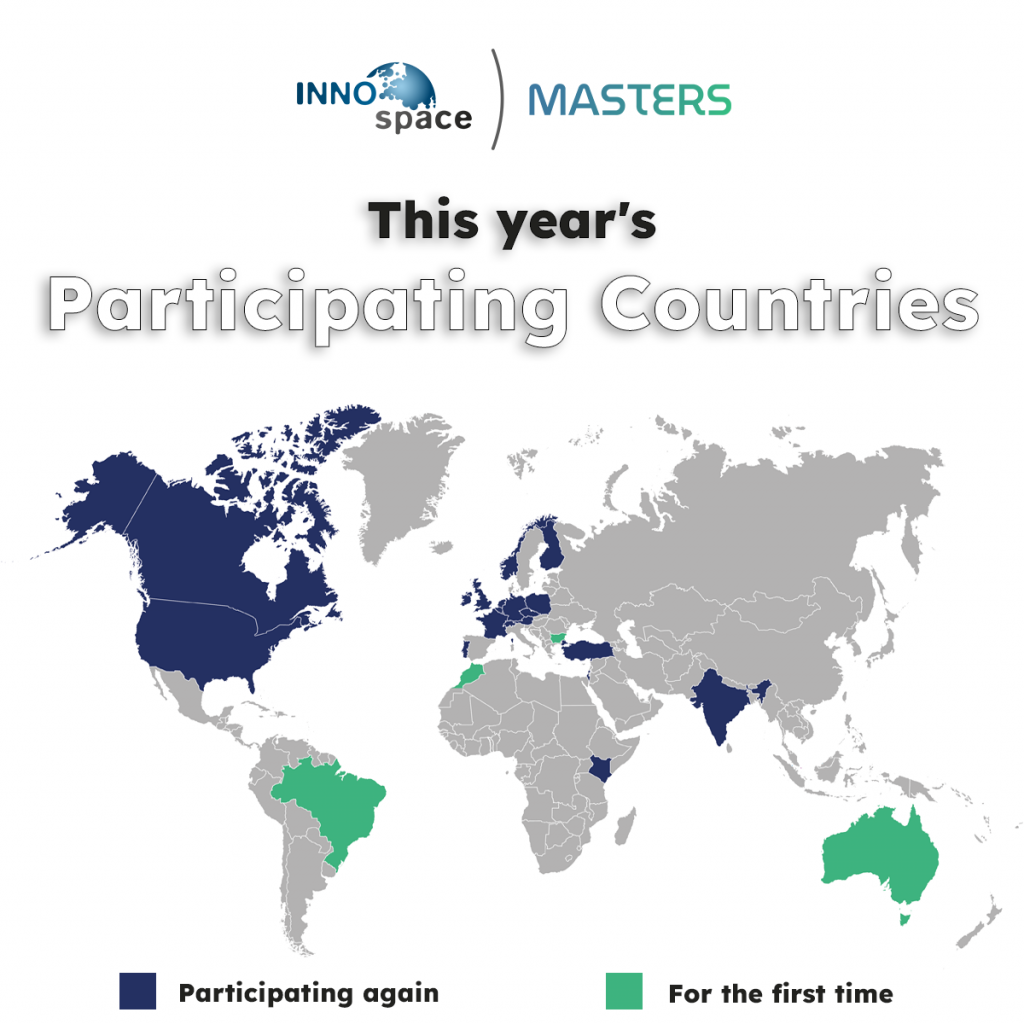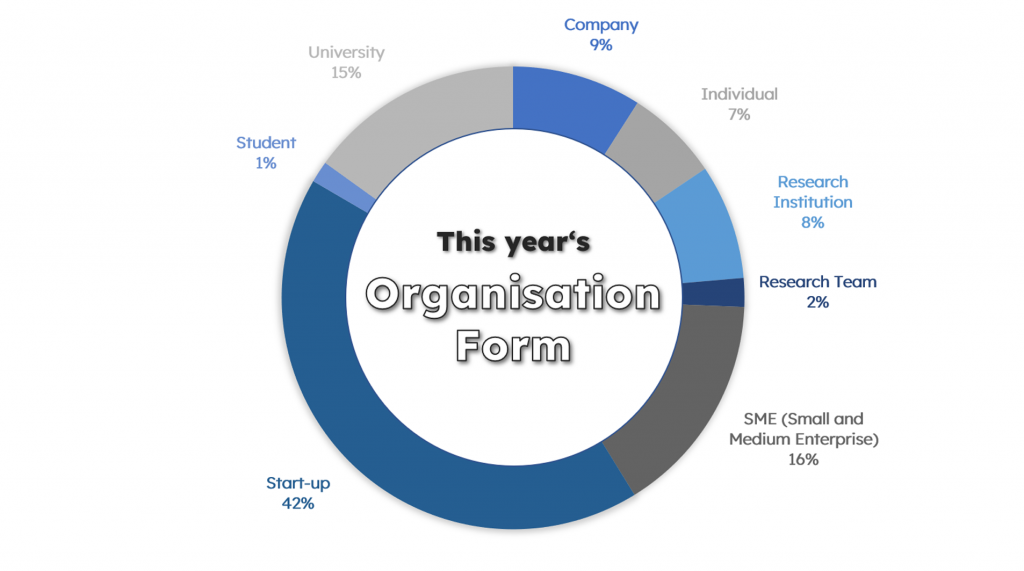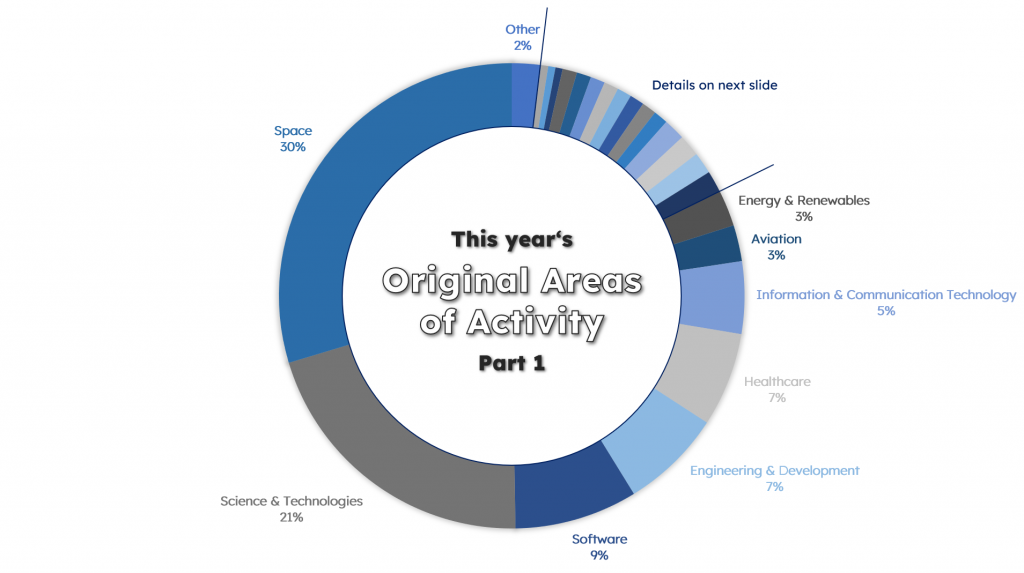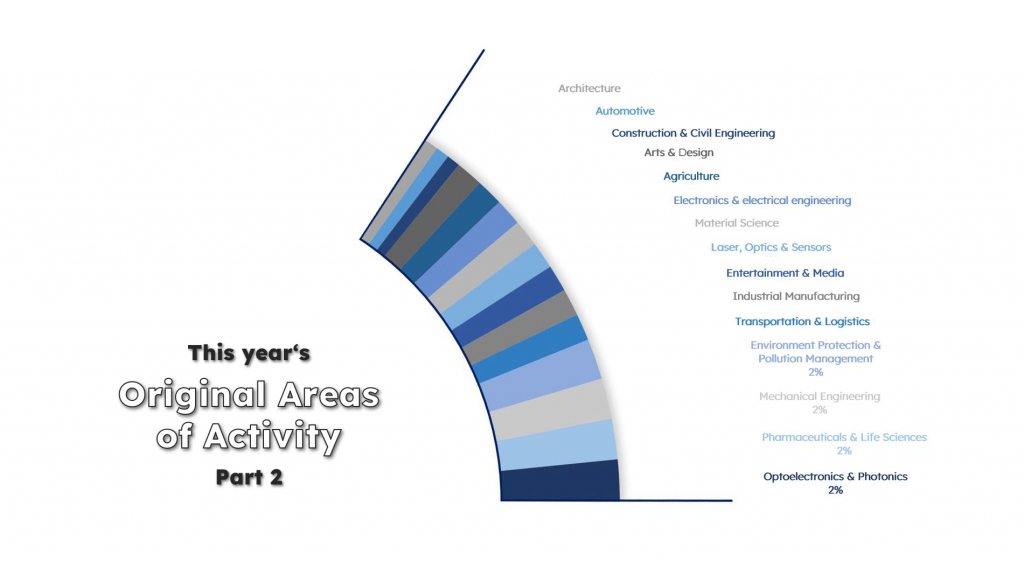INNOspace Masters 2024
Innovations for a smarter
Earth and Space
Meet the Top 3 of the ESA BIC Challenge 2024
Helios LITE (Dr Danny Kirmse): An initial electric thruster model based on the two-stage ionisation concept of Helios to achieve the next step in interplanetary transportation. The thruster uses a capacitive discharge as the pre-stage and an inductive discharge as the main stage to ionise a neutral fuel gas under higher pressure conditions.
QuSSat (Gabriel Müller, Gina Kleinsteinberg, Jan-Niclas Kirsten-Siemß, Christian Struckmann): A new interface for quantum sensors to dramatically reduce their development time and cost. The interface is so easy to use that users don’t need to learn anything about quantum mechanics to benefit from the advantages of quantum sensor technology in space missions.
Agrario Energy (Alexander von Breitenbach): The first tendering platform for renewable energy site assessment based on satellite data and matching with potential implementation partners. The platform helps find the best project developer for any landowner looking to lease land for renewable energy projects – click by click through an app and as easy as online car rental.
Registration for the Final Event is open!
We invite you to our final event on 9 October 2024 in Berlin. Meet the top 3 winners of all six challenges and be there when this year’s overall winner is announced. You can also look forward to an exciting social programme. Themed “Space up your Life – Thinking the future to act smart now”, the event brings together leading space experts, industry professionals, space enthusiasts and political guests. Keynotes and expert panels will provide ample opportunity for networking and discussion among conference delegates.
This year, for the first time, our final event will take place at the Kulturbrauerei in Berlin.
Register NOW: https://registration.dlr-pt.de/en/innospace-masters-final-event-2024/registration/
Choosing the Overall Winner 2024 in Bonn
The best idea out of 199 submissions from 24 countries – the INNOspace Masters Overall Winner 2024 – is set! Out of 18 TOP3 winning teams 16 made the journey to Bonn in person last week and received live coaching sessions to pitch for this year’s overall winner. You will find out which idea stood out this year when we announce it on 9 October at our final event in Berlin. Until then, all partners and the INNOspace Masters team would like to thank this year’s participants for their innovative ideas!
Over the next weeks we will introduce the Top 3 of every challenge.
The TOP 3 selection is completed
The decision has been made: This year’s Top 3 in all six challenges have been decided. The selection process is complete and the finalists will be notified shortly.
The next step will be the start of the joint journey between each partner and their finalists with an on-site coaching session in Bonn. On the following day, the TOP 3 of all Challenges will pitch to a joint jury with representatives of all partners to determine the most promising submission of the entire INNOspace Masters 2024 – to find the team that will be crowned as the Overall Winner. This will take place on the 8th and 9th of July in Bonn.
Evaluation Top 8
Our juries have chosen the top 8 in five of the six competition challenges. If you are one of them, you have already received a congratulatory email with further details.
Participants of the Mercedes-Benz car2space Challenge will be informed at the beginning of next week.
If you did not get a positive answer this year – the INNOspace Masters 2025 will be your next chance!
The next step is the online pitch to select the top 3 in each challenge. The dates are as follows
- 20 June: ESA BA Challenge
- 20 June: OHB Challenge
- 21 June: ESA BIC Challenge
- 26 June: DLR Challenge
- 27 June: Airbus Challenge
The top 8 will receive a second email shortly with the exact time slot along with a personalised invitation and further instructions for their online pitch. All winners will be invited to the overall evaluation meeting in Bonn on 8-9 July.
If you have any questions, please contact INNOspace-Masters@iqib.de
Submission closed – Next steps
Submission for the 2024 round of the INNOspace Masters competition is closed.
What happens next?
Our judges will select the TOP 8 for each challenge by 14 June. And the TOP 3 by 30 June. The final decision will be made on 8 and 9 July: Who is the Overall Winner 2024?
All winners will be announced at the final event in Berlin on 9 October. Save the date!
Facts & Figures
For this year’s round of the INNOspace Masters competition we have received 199 ideas from 445 participants from 24 countries, including, for the first time, Brazil, Australia, Morocco and Bulgaria.

© All rights reserved

